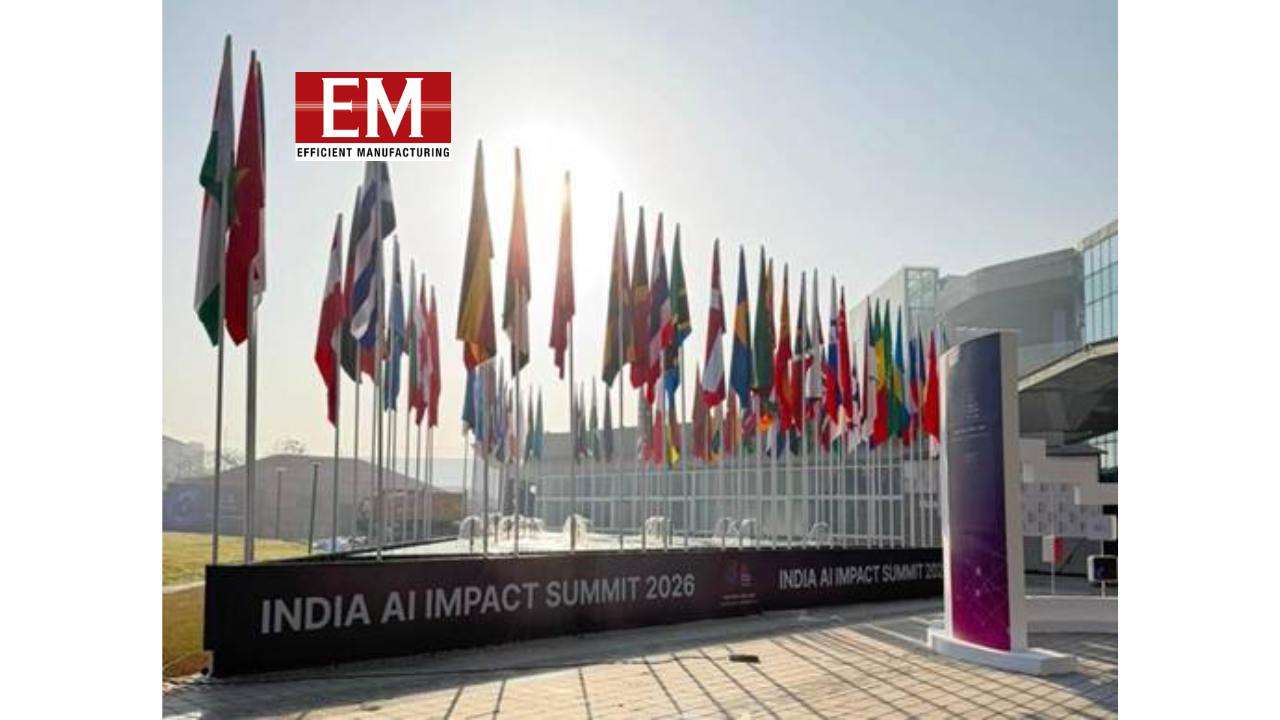| Mr Pulak Jain, Co-founder, Chief Business Officer and Head of strategy at TransBnk, explores how transaction banking and advanced trade finance solutions are revolutionizing global manufacturing. By mitigating risks, optimizing capital, and enhancing cross-border trade, these innovations empower manufacturers to achieve sustainable growth in an increasingly interconnected world.
Traditionally, global manufacturing operations have seen tumultuous times, majorly on the back of spiking business risk and lack of financing involved in complex supply chains by the handful of banking institutions which ultimately led to reduced public trust and a diminishing investor interest. As the world paved its path into a digitally connected world, the financing sphere started democratizing with new-age banking institutions and NBFCs stepping in to aid global trade with nimble transaction banking services and contemporarily devised trade financing instruments that are inclusive and compliant in approach.
The contemporary global trade finance instruments are helping the stakeholders across the supply chain with seamless access to financial flows around the clock that in turn reduce their financial liability and risk. Customer-centric trade finance instruments and digitally-led solutions have particularly helped streamline cross-border transactions and accelerate the trade of goods/services between different countries.
Here are some of the innovations in Trade Finance:
- Supply Chain Finance: Dedicated Supply Chain Finance programs help secure operational funds for the buyers as well as the suppliers. Increasing the buyer’s credit power, the SCF program by banking institutions enables suppliers to have access to funds with early invoice clearances. It also offers flexibility to the buyer with extended terms in payments. This creates a win-win for buyers and suppliers of different geographies to attain financial security during the transaction.
- Open Account Trading: An instrument that enables goods to reach the buyer ahead of a fixed payment cycle ranging between 30-90 days, has gained popularity among countries on the back of strengthening bilateral ties and digital footprint of goods delivery and transactions hence driving out risk of non-payment.
- Blockchain Technology: Known as the tamper-free digital ledger, blockchain has a strong use case across sectors, especially in trade finance. Providing tamper-free records of transactions, blockchain technology helps alleviate the need for intermediates while upholding transparency and security of transactions between the parties. It also helps with automated processes for document verification and customs clearances basis the pre-fed markers within the system.
- Digital Trade Platforms: Easing trade finance availing virtually, digital trade platforms enable a suite of trade finance processes including digital documentation, live access to transaction history, and much more, which in turn help in risk against manual errors, and help attain maximum compliance.
Transaction Banking’s benefits to global manufacturing
Having learnt the innovations that the space is sitting on, let’s understand the various benefits that transaction banking provides to global manufacturing operations:
- Alleviating Risks: Given the uncertainties involved in cross-border transactions at a time when geopolitical tensions affect trade severely, and natural calamities/ accidents can claim goods, both, the sellers and the buyers must rest assured about their finances. Transaction banking offers risk-averse solutions like letters of credit/guarantee to protect both parties’ interests.
- Optimizing Operational Capital: Giving manufacturers the leverage of early access to cash with strategic programs including SCF and invoice discounting, transaction banking offers manufacturers an edge to invest the liquid funds in potential opportunities.
- Easing Cross-border Trade Processes: While manufacturers may find difficulty in the complex processes involved in catering to an overseas client, transaction banking helps streamline the processes by easing cross-border payments, currency exchange, and providing trade documentation services.
- Supply Chain Visibility: Providing manufacturers with access to real-time information about various aspects of their supply chain, including inventory levels, shipment tracking, and effectively managing supplier relationships, etc., transaction banking has eased access to the multitude of information in bite-sized information packets available on specially curated digital platforms.
How advanced trade finance solutions and transaction banking are benefiting global manufacturing operations:
Let’s understand the many benefits that trade finance solutions and transaction banking provide that ultimately help benefit global manufacturing operations.
- Cost Optimization: As transaction banking and trade finance instruments offer automation of various processes and also help maintain digital records of documents, manufacturers enjoy a notable cost reduction through the elimination of several manual processes.
- Increased efficiency: Enhanced transparency, reduced paperwork, and efficient transaction cycles, together help manufacturers to attain heightened efficiency.
- Better accessibility to finance: SCF and several other new-age smart financing solutions have improved access to finances and operational capital for manufacturers – a need for the burgeoning small and medium-scale enterprises.
- Eliminating risks: Cross-border transactions traditionally left manufacturers in the grey with the risk of non-payment. However, with digital tracking of shipments and transactions, transaction banking services and trade finance agreements offer relief to the suppliers by building a positive relationship between trading partners.
Future of trade finance and transaction banking in optimizing global manufacturing operations
Given the many benefits of how transaction banking and trade finance solutions are aiding manufacturers to attain financial stability while alleviating risk on non-payments and opening new opportunities for growth with the establishment of positive relationships across the supply chain ecosystem, the future looks bright for trade finance and transaction banking services as various manufacturers of varying scale eye to expand their reach to the global audience. Employing new-age tech like Artificial Intelligence and Machine Learning in the near future will further help manufacturers with fraud detection and risk assessment to help them make informed decisions while entering the global trade route. Blockchain technology will continue to enhance transparency between parties and provide security of transactions to the suppliers. Given the fast-paced environment in which the global supply chain is evolving, digital platforms are here to stay for providing a clutch of real-time solutions like maintaining documents, automating mundane manual processes, mitigating errors, and much more that ultimately help manufacturers to optimize their costs in the long run while remaining compliant in operations which in turn benefits the complete supply chain.
To conclude, with the advancements in trade finance and leveraging transaction banking, global manufacturers are benefiting on various fronts. From reducing financial risks to optimizing costs, easing cross-border transactions, and inducing transparency of transactions throughout the supply chain, both trade finance and transaction banking are empowering manufacturers like never before and are here to stay to further help them as they pay their way through the complex route of global trade and attain sustainable growth in the increasingly globalized economy.











